The Movie Book (Big Ideas Simply Explained) (2016)
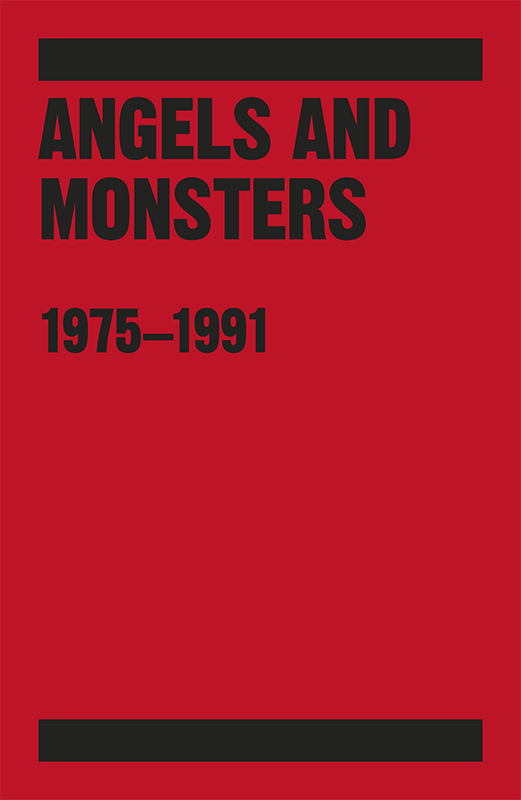
INTRODUCTION
After the major upheavals of the Swinging Sixties, the 1970s saw a different kind of revolution unfold. For all the tremors at their foundations, it seemed Hollywood’s big studios were still standing, but now a new kind of movie burst onto the scene.
Director Steven Spielberg was, like so many of his peers, a young, movie-literate hotshot. But deep down he was also an old-fashioned showman. In the classic Hollywood tradition of happy accidents and unlikely triumphs, the production of Jaws was cursed by a man-eating great white shark that Spielberg felt was so laughably unrealistic he could barely bring himself to put it on screen. And yet it became the hit that changed the movies, installing a new type of blockbuster at the top of the food chain.
Two years later, when George Lucas’s Star Wars came along to capture the imagination of a generation, the movie business was further transformed. Entering the world of Wookies and Jedi would become a rite of passage for each new generation of moviegoers, but Lucas’s success also meant that soon, for Hollywood, there was no such thing as mere movies any more—only franchises in waiting.
And yet this was also a time when some of cinema’s finest minds made their most audacious and enduring movies. In America, after Chinatown’s definitive portrait of LA’s murky backstory, the spotlight now fell brilliantly and unforgivingly on New York. By the mid 1970s, Martin Scorsese had already announced himself as a giant talent—but Taxi Driver (starring Robert De Niro as cabbie and ex-Marine Travis Buckle) would be the first of Scorsese’s masterworks, a dazed snapshot of paranoia and urban decay that became an instant time capsule.
Alvy Singer was the hero and neurotic narrator of another consummate New York story: Woody Allen’s romantic comedy, Annie Hall. For years to come, rare was the movie that wasn’t in debt to one of those characters and its creators.

Beyond Hollywood
Outside America, ambiguity throbbed at the heart of movies that once seen, would be impossible to ignore. From Australia, in the same year that Spielberg’s shark thrilled audiences in Jaws, director Peter Weir made Picnic at Hanging Rock, a story that inspired equal dread with its wispy account of missing schoolgirls in the outback of 1900. Meanwhile, in an industrial pocket of Estonia, the great Russian director Andrei Tarkovsky was making Stalker, poised between science fiction and philosophy. These are movies that remain, even now, gloriously unfathomable.
"Now more than ever we need to listen to each other and understand how we see the world, and cinema is the best medium for doing this."
Martin Scorsese
New decade, new voices
In the 1980s, Wall Street traders and mainstream movies looked slicker than ever, but around the edges, directors still drilled down into what lies beneath. Perhaps nothing sums up that better than the fact that David Cronenberg—whose notorious “body horror” scenes were less disturbing than the psyches of his characters—was once offered the chance to make that gung-ho landmark, Top Gun (1986). And then there was David Lynch—who, like Hitchcock before him, was unique enough to exist as a genre of his own, his movies driven by the subconscious, and at least as surreal, funny, and disturbing as real dreams can be.
By the end of the 1980s, other voices were speaking up. Indie movies were in the ascendant, from Spike Lee tracking racial tensions in Brooklyn, to Steven Soderbergh training his lens on sexuality and relationships. From China, Zhang Yimou’s Raise the Red Lantern was both a gorgeous period drama and a signal of a global future.
Meanwhile, cinema itself survived another attack on its very existence: just as TV had been supposed to leave it for dead in previous decades, so too was the rise of home video in the 1980s. In the battle between VHS and cinema, there was only one winner: new formats come and go, but the movies endure.

IN CONTEXT
GENRE
Action adventure
DIRECTOR
Steven Spielberg
WRITERS
Peter Benchley, Carl Gottlieb (screenplay); Peter Benchley (novel)
STARS
Roy Scheider, Richard Dreyfuss, Robert Shaw, Lorraine Gary
BEFORE
1971 In Spielberg’s thriller Duel, a driver is chased by a truck.
AFTER
1977 Close Encounters of the Third Kind is Spielberg’s ambitious sci-fi drama.
1993 In his blockbuster Jurassic Park, Spielberg brings dinosaurs back from extinction.
There are many memorable lines in Jaws, but “You’re gonna need a bigger boat” is the one most people remember. It comes just after Brody (Roy Scheider), the aquaphobic police chief of Amity Island, first sees his nemesis: the great white shark, which smashes out of the water, mouth gaping, heading straight for the audience in their seats. It’s a theme-park moment—the shark is clearly mechanical, a prop on a hydraulic crane, but we don’t mind because Jaws is as much a ride as it is a movie.
When Steven Spielberg’s monster movie was released in June 1975, there was a sense that something new had arrived. Adapted from a best-selling novel by Peter Benchley about a shark that terrorizes a small beach community, Jaws sold 25 million tickets in 38 days—it started big and swelled to mammoth proportions. Studio executives quickly realized that they were onto something—Jaws 2 was rushed into production and came out in 1978. Spielberg had invented the “summer event movie”—the action-packed blockbuster aimed at summer audiences that became Hollywood’s great obsession for the next four decades.
"What this movie is about, and where it succeeds best, is the primordial level of fear."
Gene Siskel
Chicago Tribune, 1975
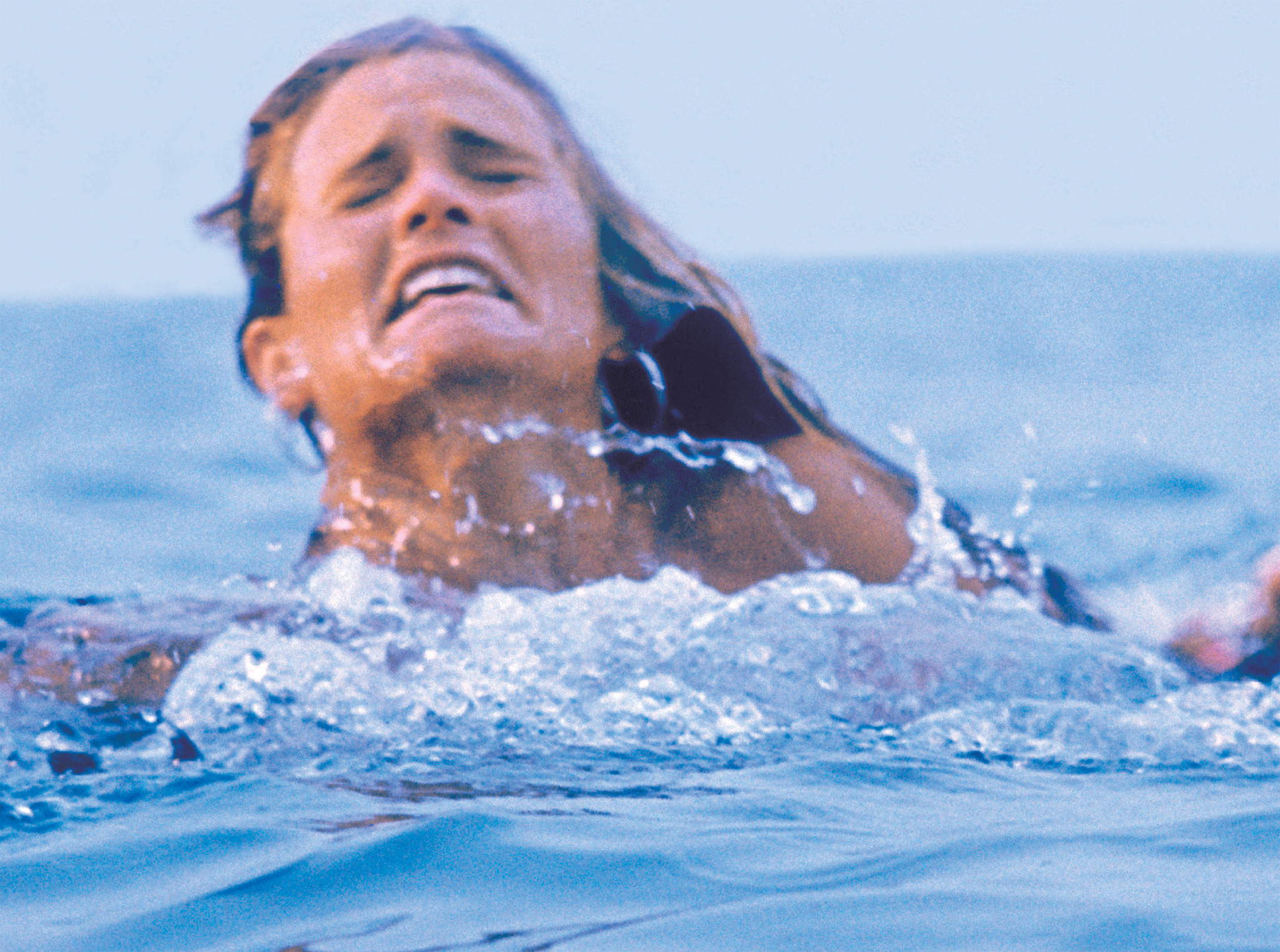
The shark’s first victim is lone skinny-dipper Chrissie (Susan Backlinie). The attacker is all the more terrifying for being unseen.
Pure entertainment
Jaws changed American cinema, which, for the first half of the 1970s, had been in thrall to low-key, European-style movies with deliberately tricky characters and ambiguous moral codes. Spielberg’s big-fish tale was a throwback to the fun-house origins of the moving image—it was pure entertainment, a roller coaster that promised scares but at the same time sought to reassure its audience. The movie contained all the elements that would go on to make a typical Spielberg sideshow: ambitious special effects, a high-concept story, cute kids, a small-town American hero who finds himself out of his depth, and plenty of opportunities for marketing.
After Jaws came the Star Wars movies, Spielberg’s Indiana Jones saga, Back to the Future, and then the superhero mega-franchises of the 21st century. But, looking back, the picture that spawned these behemoths is a very different creature. Jaws, in comparison, is a relatively modest adventure, its chief spectacle a rubber shark so unconvincing that Spielberg worked hard to keep it off the screen as much as possible. Instead of the full-blown orchestral swoons for which he would later become famous, composer John Williams employs a jaggedly minimalist musical score to herald the approach of the shark; the result, a kind of panicked heartbeat, is the most haunting movie motif since the stabbing strings in Alfred Hitchcock’s Psycho (1960).
“This was not a boat accident.”
Hooper / Jaws
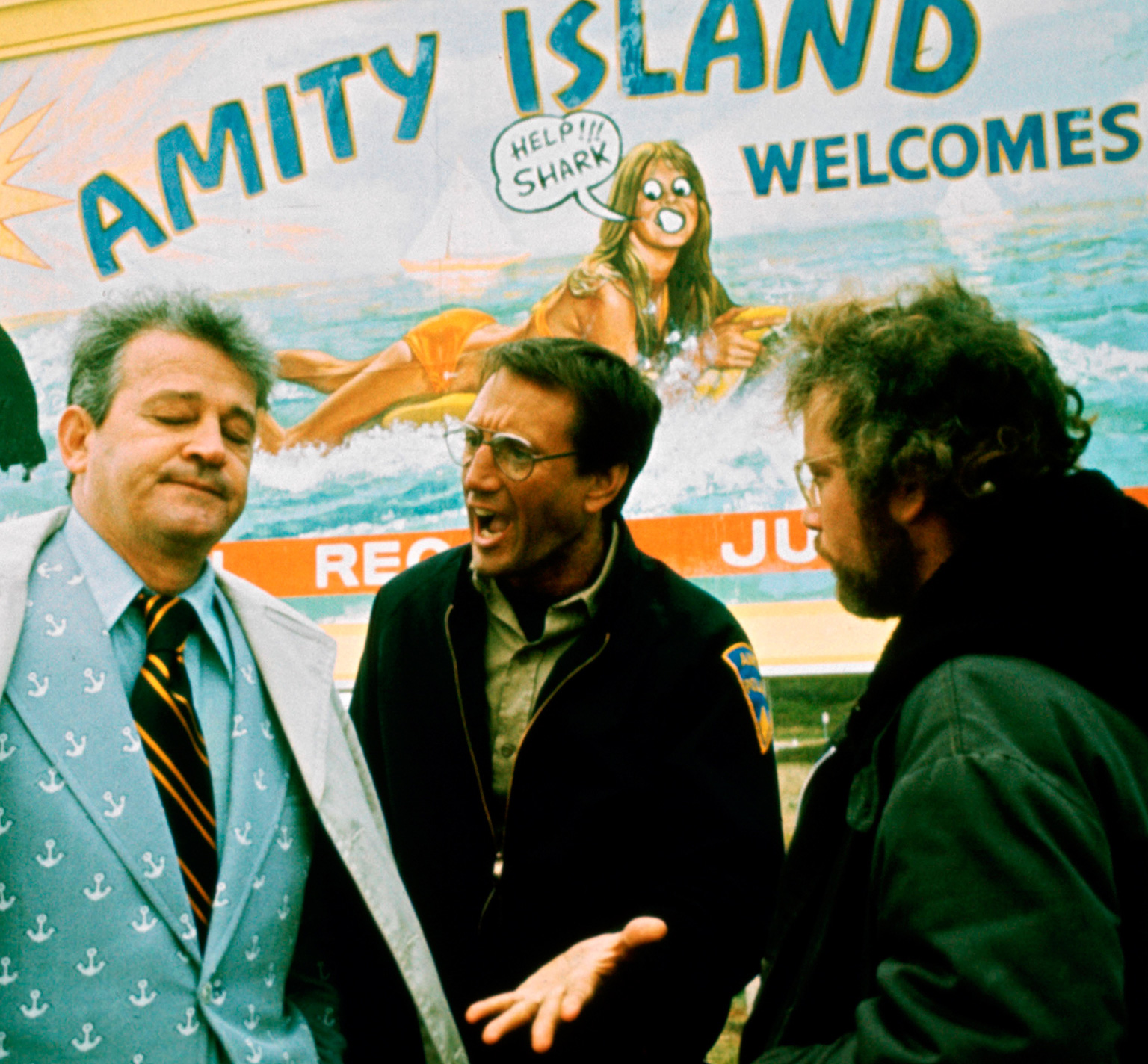
Brody (Roy Scheider, center) wants to close the resort, but is overruled by the mayor (Murray Hamilton, left), who fears that rumors of a shark attack will ruin the tourist season.
Claustrophobia
As the narrative moves into its final act, the big showdown with the great white, its trio of heroes journeys out to sea—but Spielberg narrows his focus on their tiny fishing boat, the Orca, and the story shrinks to a human drama.
For all the movie’s snapping shark jaws, exploding gas canisters, and severed heads bobbing toward the screen, the most memorable scene in Jaws is nothing more spectacular than three men talking: Chief Brody, shark expert Hooper (Richard Dreyfuss), and psychotic sea dog Quint (Robert Shaw) share a late-night drink below deck. They compare scars and sing songs, and eventually the conversation turns dark, as Quint tells the chilling story of the sinking of the USS Indianapolis in World War II. “Eleven hundred men went into the water, three hundred and sixteen men came out,” he growls. “The sharks took the rest.”
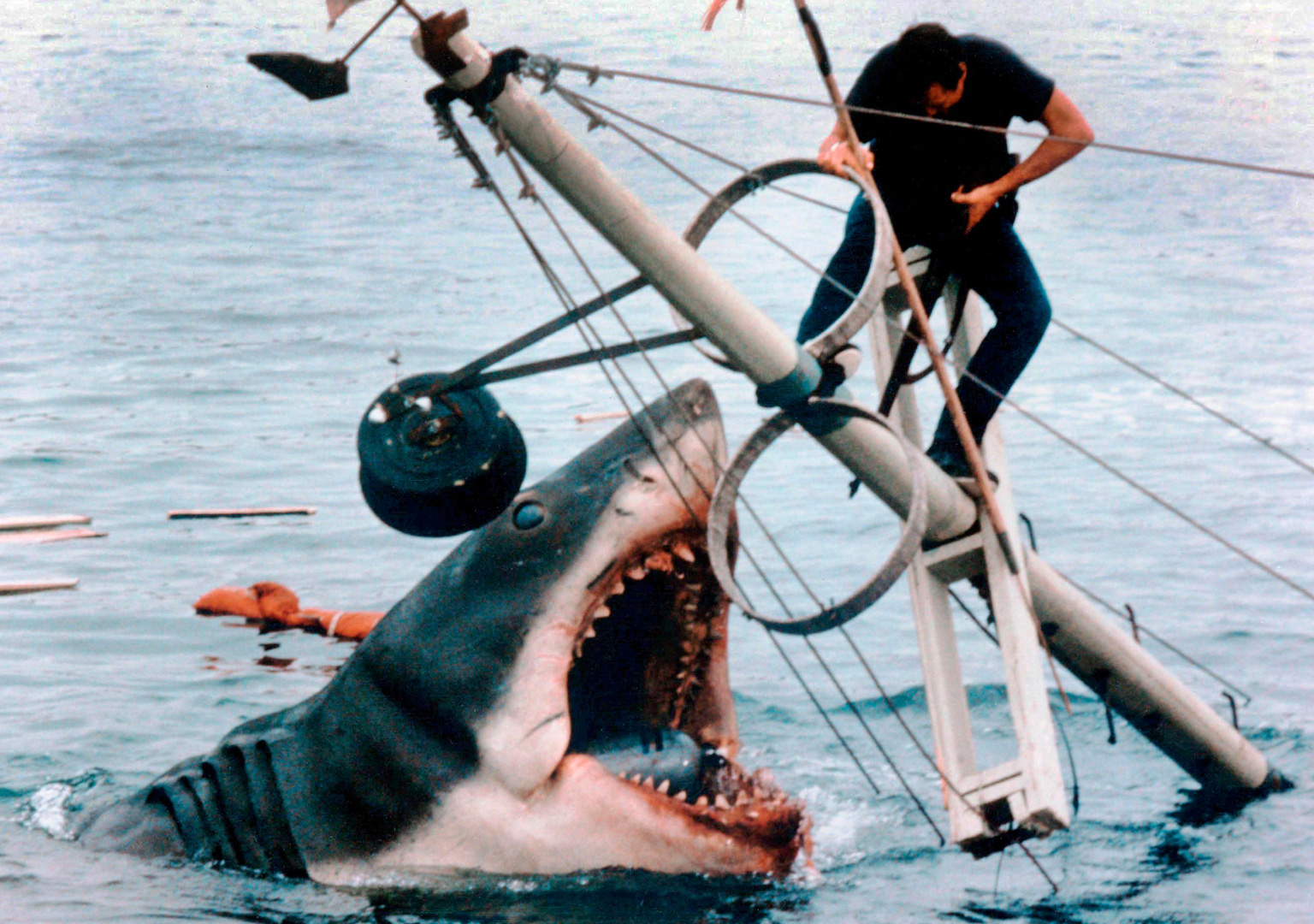
With the Orca sinking and the shark about to swallow Brody, he has one final desperate plan to kill it in a spectacular finale.
Quiet before the storm
The Indianapolis speech is a moment of quiet that gets under our skin, so when that fake-looking mechanical shark-prop rises out of the ocean we see it as the director intended: a monster imbued with awesome terror. Spielberg is a canny showman, and he knows that roller coasters rely on a lull before each stomach-churning plunge. It’s a mark of his genius that Jaws contains more lulls than plunges, yet is remembered for its shock horror and white-knuckle action adventure.
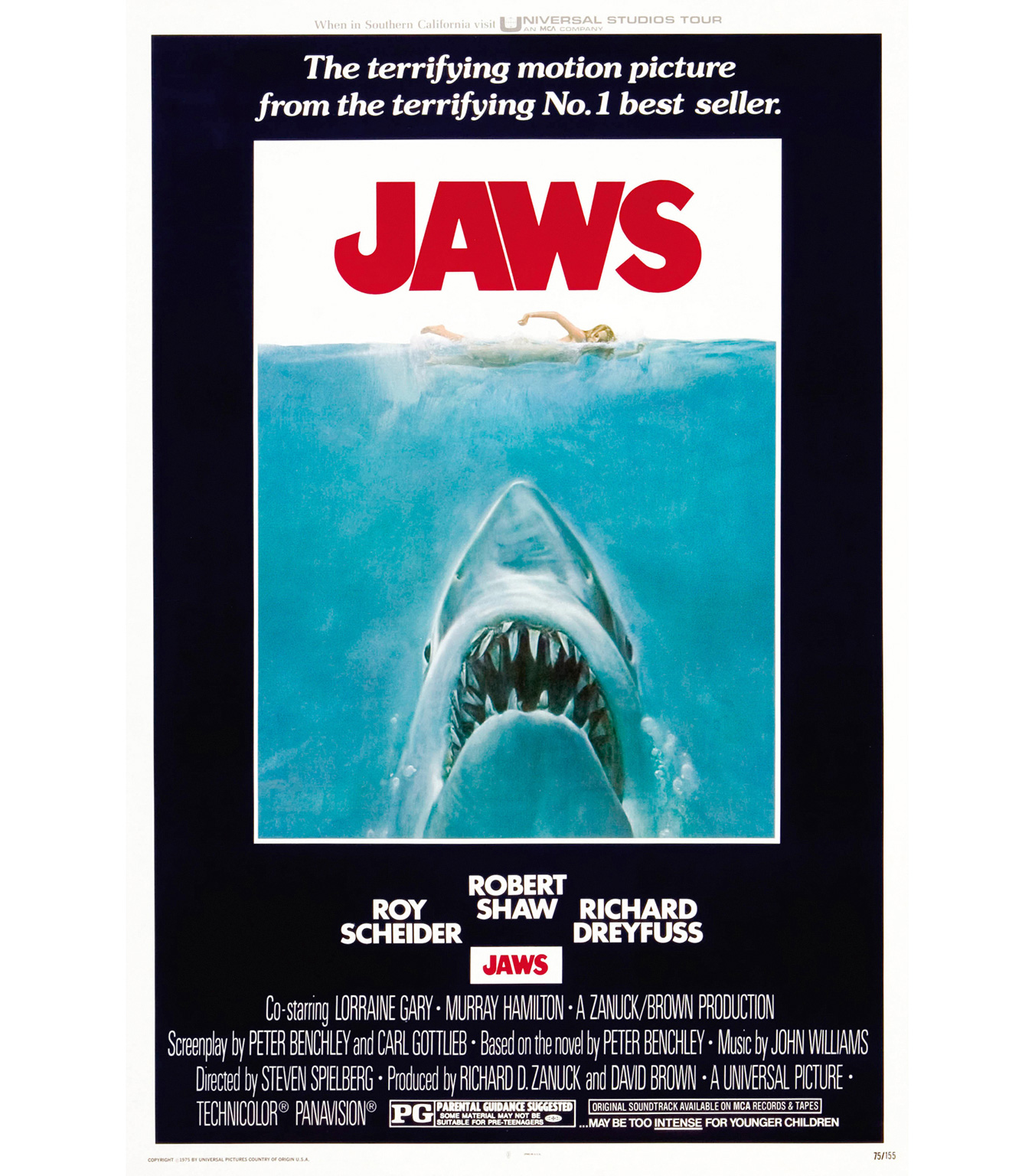
The movie’s poster is one of the most iconic designed for any movie. As with most Spielberg movies there were extensive spin-off toys and products. Surprisingly, though, it took 15 years before a Jaws theme park attraction opened, with enormous success, in Florida.
STEVEN SPIELBERG Director
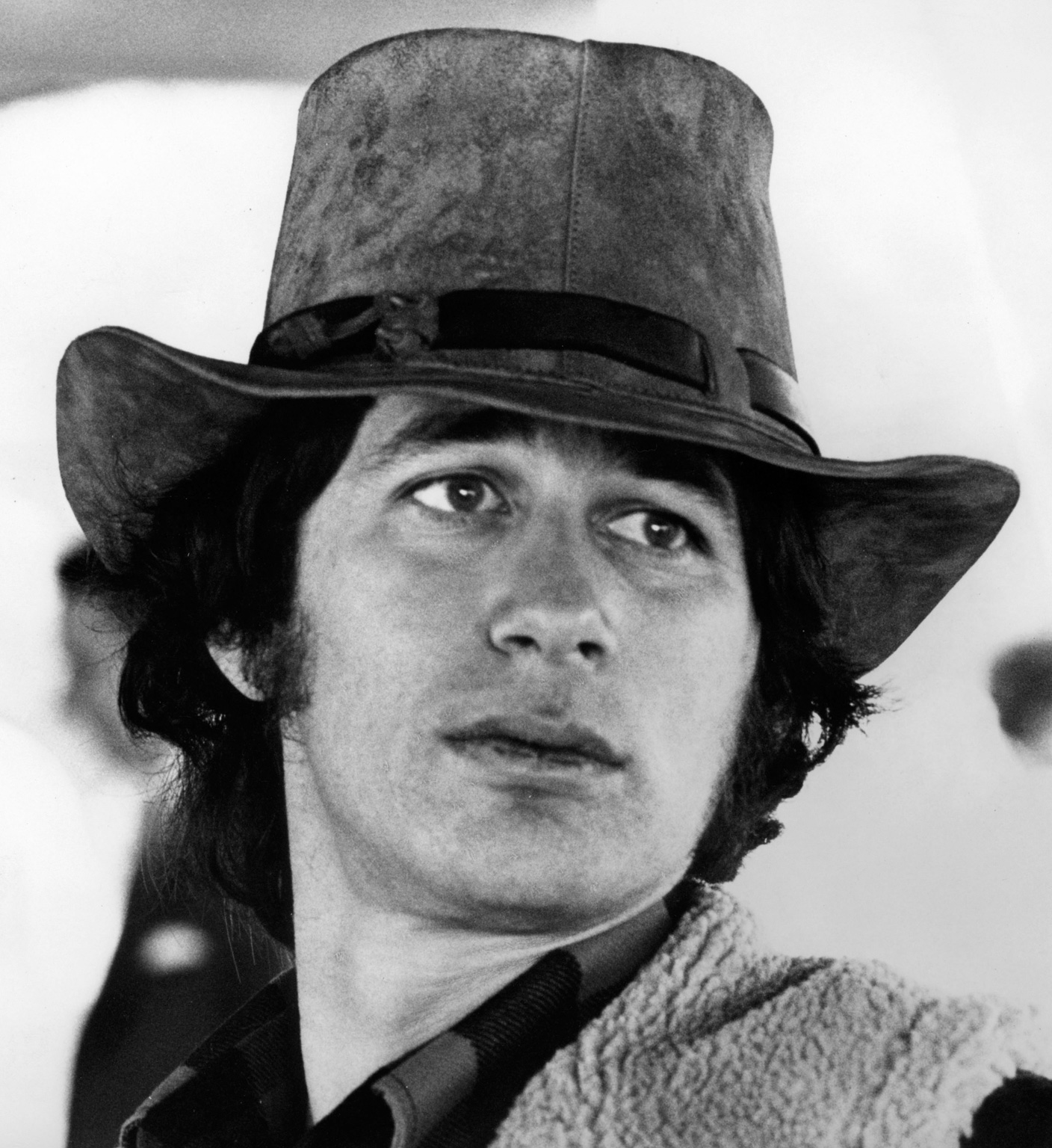
Born in Cincinnati, Ohio, in 1946, Steven Spielberg has been a household name for four decades. An all-American storyteller with a European eye, he has made some of the most successful movies of all time. With Jaws, his first hit, he invented the “event movie.” His enthusiasm for the silver screen led him to make the Indiana Jones series, a homage to 1930s action adventure serials, while his family fable E.T. proved he was a master of emotional drama. In 1993, he told a true story of heroism during the Holocaust with Schindler’s List. Since then he has balanced historical drama with special-effects spectacles.
Key movies
1975 Jaws
1978 Close Encounters of the Third Kind
1982 E.T. the Extra-Terrestrial
1993 Schindler’s List
What else to watch: Godzilla (1954) ✵ Moby Dick (1956) ✵ The Deep (1977) ✵ Piranha (1978) ✵ Alien (1979) ✵ Open Water (2003) ✵ The Shark Is Still Working (2007) ✵ All Is Lost (2013)